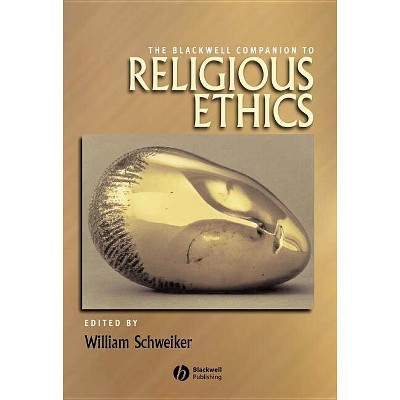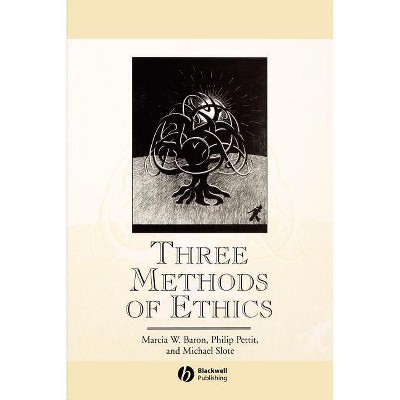About this item
Highlights
- The nature of ethics has been the subject of much controversy and argument in recent decades.
- About the Author: William Schweiker is Professor of Theological Ethics at the University of Chicago.
- 272 Pages
- Religion + Beliefs, Comparative Religion
Description
Book Synopsis
The nature of ethics has been the subject of much controversy and argument in recent decades. Theological Ethics and Global Dynamics tackles these various debates, offering a wide-ranging, comprehensive, and provocative statement of the nature of theological ethics in global times.- Offers an accessible, lively, and provocative statement of the nature of moral philosophy and theological ethics in contemporary times.
- Tackles various perspectives on debates about distinctly Christian ethics.
- Argues that we need to reframe the arena in which moral questions are asked.
- Engages a range of positions, exploring distinctively modern issues such as moral and cultural relativism, globalization, problems of consumption and violence, and religious pluralism.
- Addresses the complexity of certain ethical decisions, which are difficult and far from clear-cut, and yet presents an ethical understanding which is both humane and deeply religious.
From the Back Cover
The nature and task of ethics has been the subject of much controversy and argument in recent decades. There are those who argue that the resources needed for ethical understanding arise solely within the specific history of their traditions, whether religious or secular. Yet there are also thinkers who argue that ethics needs fundamental re-thinking in face of the challenges raised by the modern, globalized world. Ethical understanding on this account draws on multiple resources in imaginative and comparative ways in order to address shared human problems. William Schweiker has emerged as the leading theological voice from this side of the debate.
Theological Ethics And Global Dynamics: In The Time Of Many Worlds is a wide-ranging, comprehensive, and provocative statement of the nature of theological ethics in global times. It argues that we need to reframe the arena in which moral questions are asked and answered. The volume draws on a wealth of materials ranging from biblical texts and classical myths, to literary works, and even contemporary film. More positive in tone than the often skeptical outlook of postmodernity, the book engages a range of positions, exploring issues such as cultural and moral relativism, dimensions of globalization, pressing moral problems like consumption and violence, and religious pluralism. While it speaks to the complexity of life, where ethical decisions are difficult and far from clear-cut, it presents an ethical perspective which is both humane and deep religious.
The style of the book is clear and engaging, designed to be used by senior undergraduate and graduate students studying contemporary ethics.
Review Quotes
"It is a very good book that will greatly benefit everyone who needs to think deeply about the world in which we live." (Political Theology, June 2009)
About the Author
William Schweiker is Professor of Theological Ethics at the University of Chicago. An award-winning essayist, his publications include The Blackwell Companion to Religious Ethics (Ed., 2004), Power, Value and Conviction: Theological Ethics in the Postmodern Age (1998), Responsibility and Christian Ethics (1995) and Mimetic Reflection: A Study in Hermeneutics, Theology and Ethics (1990).











